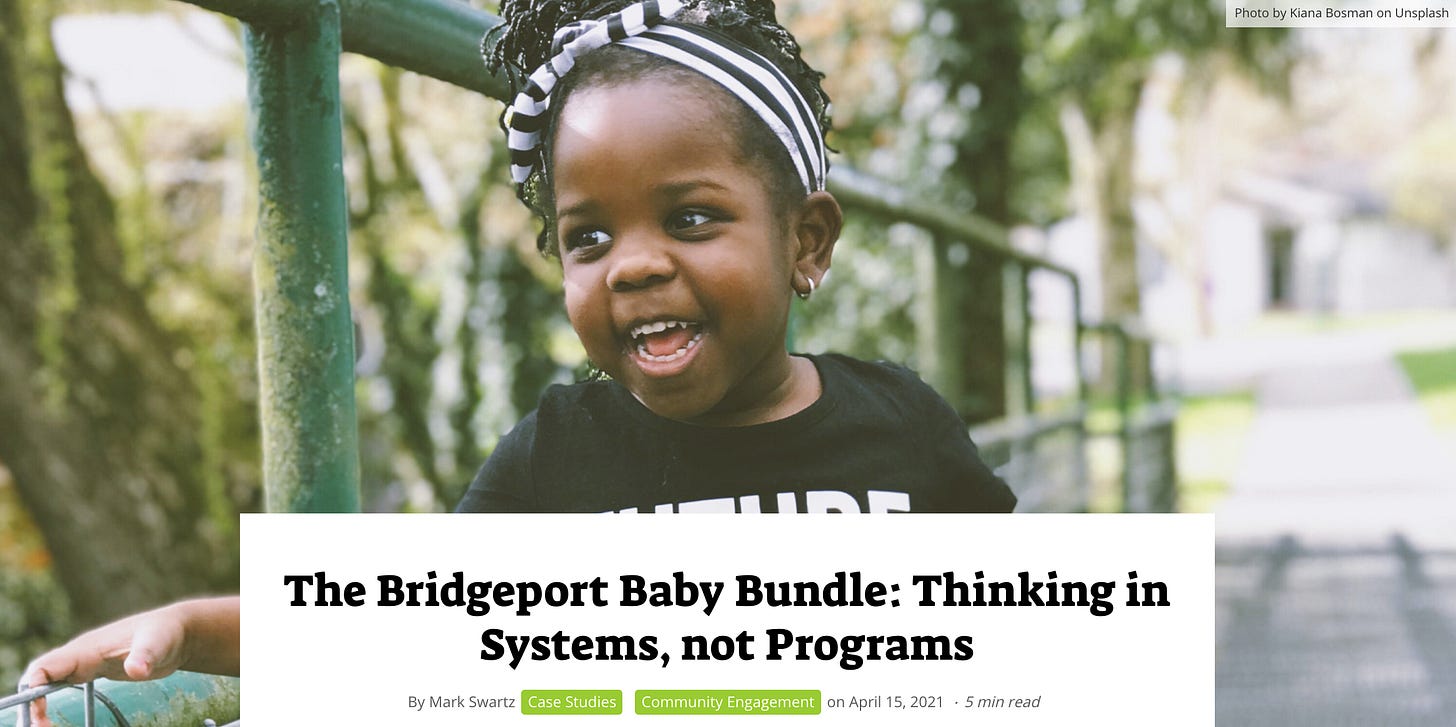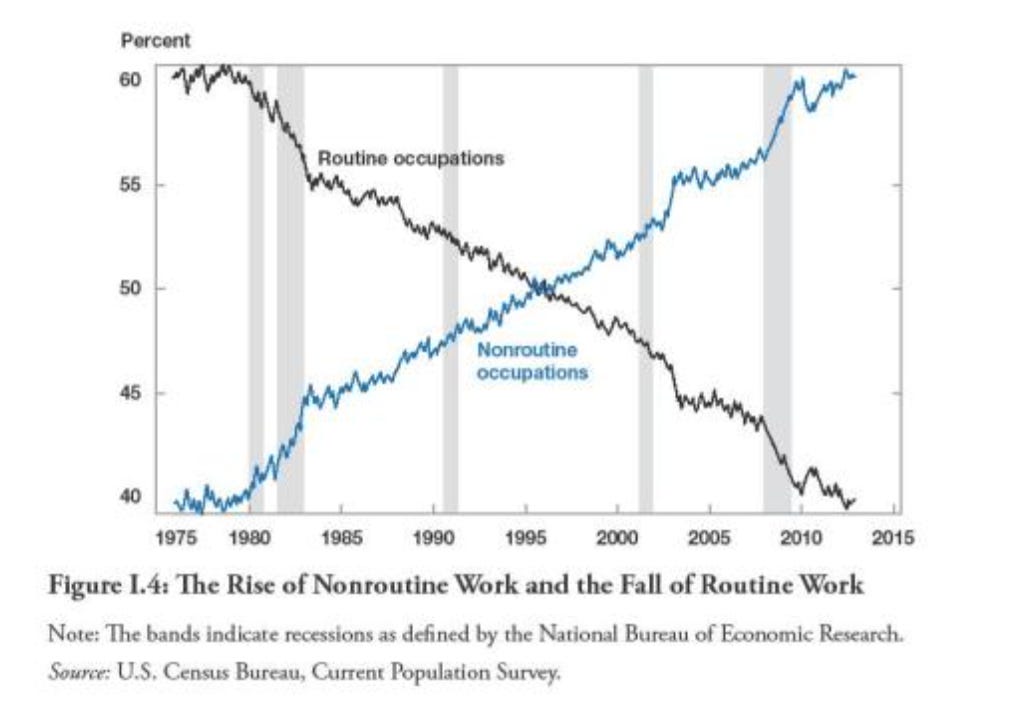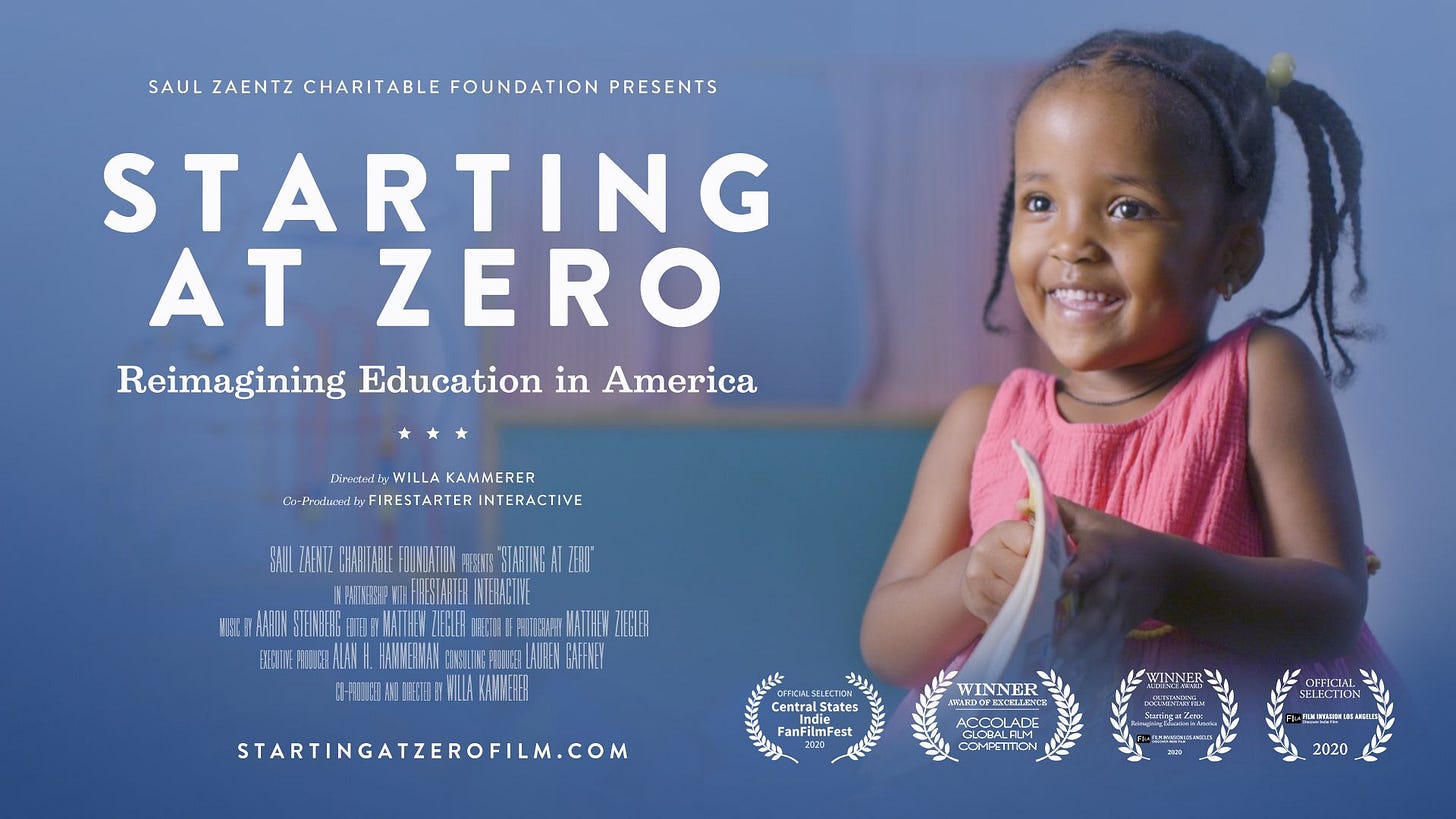Small Talks, No. 6
April 16, 2021
Dear Small Talker,
Welcome to the sixth edition of Small Talks. Every Friday, I highlight 6 areas of weekly joys and reflections in early childhood and the whole family. Small Talks leverages my experience at the intersection of education, philanthropy and impact investing. Enjoy!
What I’m celebrating —
Happy week of the young child - a tradition started by the National Association for the Education of Young Children (NAEYC) 50 years ago. Watch this clip with Tabatha Rosproy, who was named Teacher of the Year in 2020 and was the first-ever early childhood teacher to receive such a distinction.
Surreal to read those words from Vice President Harris. This is clearly a historical moment for child care. In addition to equitable access and affordability, a focus on quality will be critical going forward.
Fascinating neuroscience research, led by Kimberly Noble, on the causal impact of poverty reduction on child development. Prior research had shown correlation: modest cash infusions in low-income families make a positive difference in child education outcomes.
Great piece by Stacey Childress, CEO of NewSchool Venture Fund “What We’ve Learned by Investing $52 Million in Black and Latino Innovators”
Innovative structure by Outschool, an edtech company that offers small classes online, reserving a 2% stock option pool to benefit teachers in their latest fundraise.
What I’m listening to —
The New Neighborhood’s podcast by early childhood expert Joan Lombardi highlights the “baby bundle”, a coordinated community effort in Bridgeport, CT, to address pre-natal to three-year gaps, with inspiring engagement of doulas and faith-based organizations. Excellent write-up by Mark Schwartz at Early Nation.
I enjoyed listening to the podcast What I Want to Know by Kevin Chavous, former DC Council member, and specifically this episode - Does the United States economy still have room for students’ dreams? Pearls of wisdom from:
Heather McGowan, author of The Adaptation Advantage, highlights the “engagement gap”: 74% learners are excited about school at Kindergarten entry vs. 24% at High School entry, and speaks about the need to move past the “fixed occupational identity” to “adaptive occupational identity”.
Karl Rectanus from LearnPlatform notes that the average number of edtech tools per school district has grown from 500 in 2017, 900 in 2019 to 1,400 in 2021 during COVID, and the need to track learners’ engagement for equity.
What I’m reading —
The Adaptation Advantage: Let Go, Learn Fast, and Thrive in the Future of Work by Heather McGowan is a call to stop defining ourselves by our jobs, to extend formal education into lifelong learning, and to let curiosity lead us through the arc of our working lives.
What I’m watching —
The early childhood documentary Starting at Zero is a beautiful synthesis on why the early years matter. The Hunt Institute is offering free access to the documentary during the Week of the Young Child. Check it out this week.
What I’m learning and exploring more deeply —
Great piece by Marcella Bombardieri Covid-19 changed education in America — permanently with some important themes about learner supports (including community schools), technology as a basic need, online learning, and more.
Two inspiring reports on the future of learning and well-being:
Portals to Beautiful Futures by Omidyar Network looks at 4 provocative questions and imagine a 2036 future…
What if shared well-being became the standard of success for our nations?
Are we ready to move from an era that rewards extraction to one that prioritizes regeneration?
How will we move from an era of destabilizing information into an age of trusted wisdom?
Can we dismantle industrial-age silos between work, home, education, play, and community?
In Five questions from Global Trends 2040, Joe Waters at Capita asks key questions about the future of children well-being, reflecting on the National Intelligence Council’s Global Trends 2040.
Neuralink, Elon Musk’s brain implant project, is mind-boggling. Latest shows a video of a chimp playing video game through decoding/recoding of its neural activity. Human applications (and ethical questions) are endless.
In The Power of Proximity: Co-Locating Childcare and Eldercare Programs published in SSIR, Donna Butts and Shannon Jarrott highlight the potential of intergenerational shared sites that bring childcare and eldercare under the same roof. They help both generations thrive, and we need to build more of them.
Quote I’m pondering —
“The teacher learns more than the student. The author learns more than the reader. The speakers learns more than the attendee. The way to learn is by doing.”
— James Clear, author of Atomic Habits
Feedback is a gift. Which part above is your favorite? What did I miss? What do you want more or less of? Other suggestions? Please kindly let me know.
Have a wonderful week. Please stay safe and care for each other.
Isabelle






